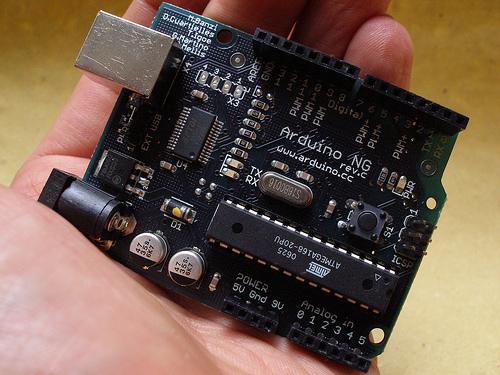
When we came up with Arduino, one of the things we decided very early on was that we wanted to release the hardware design files so that people could make their own versions or just make an exact copy if they couldn’t find boards where they lived.
I think we contributed to popularize the concept of open source hardware and we can see it from the huge amount of variations of Arduino-compatible devices being released every day.
After the platform started to become popular we had the issue of figuring out a business model to sustain our work and keep innovating the project. But we also realized we needed a way for people to be guaranteed that
they were buying a quality product that would replace any defective item, should problems arise
they were contributing to a community that would bring forward open-source values and knowledge sharing
We decided that the best way was to register the trademark of the Arduino lettering and to create a logo that would make it easier to identify products sanctioned by us.
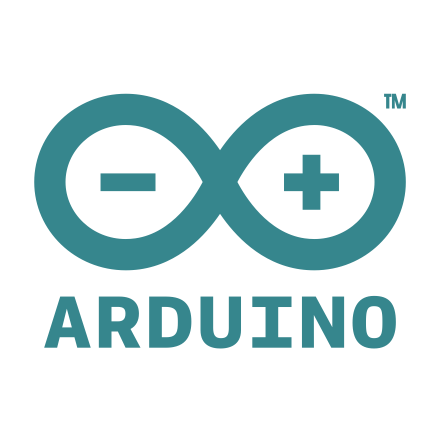
A few years later the situation is clearly complex with so many companies identifying something as an Arduino even if the only thing they have in common with us is the board pinout. It’s time we clarify what in our mind is an Arduino, what are the different variations of Arduino around and how they relate to our project.
We classified them as Clones, Derivatives, Compatibles and Counterfeits. But let’s start with explaining what is an official board.
- Official Boards
An Arduino is a board which
it’s directly supported by the official Arduino IDE
it follows the Arduino layout we have standardised
it’s properly documented on our website
it’s properly licensed to bear the Arduino name and logo
it’s made by authorized manufacturers
The authorized manufacturers pay a small royalty to Arduino to keep the project going (pay for the servers, the people who develop the software, design the hardware, write documentation and provide support, etc.). We sign contracts with them and all the authorised distributors that make sure they will replace any defective board should the customer receive a product they feel is not working properly.
Although the percentage is incredibly small (less than 1%) it’s still important to know that somebody will take care of any issue. Through this system we have enabled people to have access to cheap hardware that is properly supported and the community can build upon.
These are the only boards that can legitimately use the Arduino name.
Current official manufacturers are SmartProjects in Italy, Sparkfun in the USA and DogHunter in Taiwan/China. These are the only manufacturers that are allowed to use the Arduino logo on their boards.
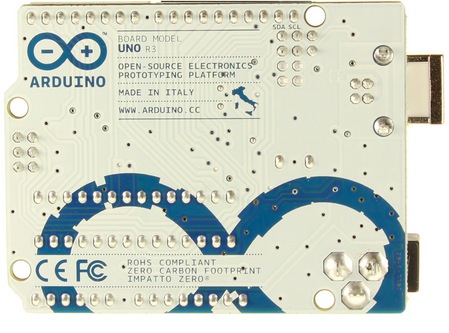
- Clones
A market developed for products we call Clones which are exact (or almost exact) replicas of Arduino boards with a different branding , i.e. they are usually named with some variation of Ardu-something or something-duino. These products are released according to trademark laws (unless they copy almost exactly our graphics which is not open-source) and have a place in the market.
Customers who want to support the Arduino project should be aware that these products do not give back anything financially and very rarely in term of help on software or documentation.
- Derivatives
A more interesting segment for us is what we call Derivatives. These are products that are derived from the Arduino hardware design but they innovate either by providing a different layout and features often to better serve a specific market. These are the products that have also helped Arduino become so ubiquitous.
There are many examples but I will mention only a couple:
Teensy by PJRC – Paul has contributed a lot of code, bug reports, pull requests and to the discourse in general.
Flora by Adafruit – Limor has contributed over 100 libraries and countless tutorials about Arduino becoming one of the most important members of the Arduino ecosystem.
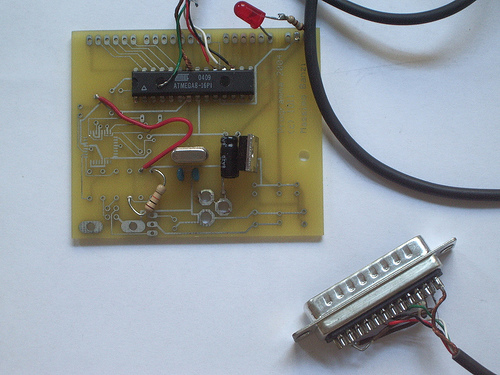
- Arduino-compatibles
There is also a hazy cloud of products that call themselves “Arduino-compatible” but their actual compatibility is sometimes really marginal.
We go from products that have a semi-compatible port of the Arduino API but use very different processors, to boards that call themselves an “Arduino” just because they have a couple of connectors mechanically compatible with Arduino.
This, for example, is very common on Kickstarter where a number of projects try to get traction by using (sometimes obsessively) the Arduino keyword throughout the project description. Normally we’re pretty relaxed about these unless they are really shameless, then we email them and sometimes they realize they have gone too far.

- Counterfeits
Finally there is a category of products that are really detrimental to the wholeopen-source hardware movement, we call these “counterfeits”.
These are boards that clone the official board including the Arduino branding (logo and board graphics). Since the Arduino graphics is trademarked and we don’t release any of the files, whoever uses our graphics and logo makes a deliberate act of Trademark infringement. These products not only trick people into thinking they are buying an official Arduino (therefore supporting the Arduino project) but they also provide no support. We’ve had many reports of people buying these products and finding out they are damaged but unfortunately for them the manufacturer is nowhere to be found to provide a replacement.
The most common place where counterfeits can be found is usually on auction sites. Special mention is needed for Amazon.com because of the way the website works: they pool together all the suppliers of a certain product. When the customer buys an Arduino they might get a counterfeit depending from which stock they used. From our side it’s hard to stop them because if we report a counterfeit Arduino on their platform, they will “kick out” all the suppliers including the legitimate ones. We’re still trying to find ways to communicate with Amazon but it’s not easy.
In any case you can read this page explaining how to spot a counterfeit Arduino.
- We love open-source
We believe firmly in open source hardware and we have always systematically released any hardware design and the software needed to reproduce our products. We think this advances the whole community and provides a platform for shared innovation where the advantages are more than the drawbacks, but we also think that Trademark violations are like identity theft: the same way each one of us wants to have the right to own their name we believe we have the right to decide whoever gets to be called Arduino, everything else is right there on Github for anybody to build upon.
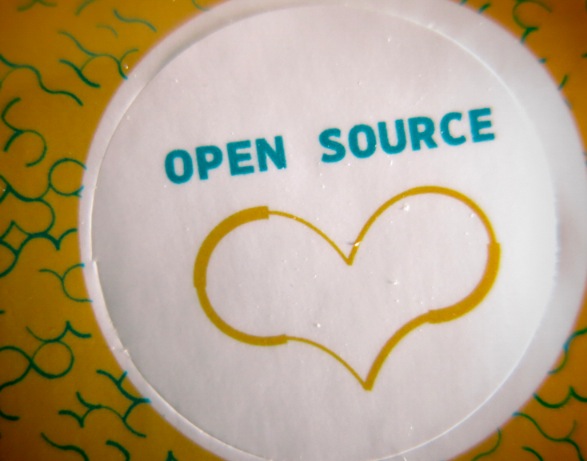
没有评论:
发表评论